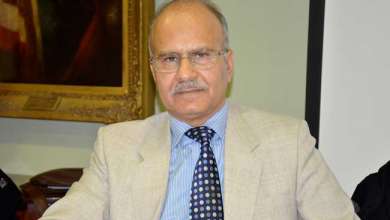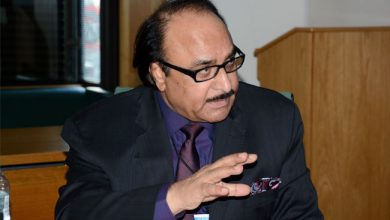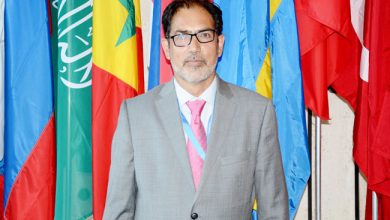Human Rights Abuses against the Kurdish People in Turkey

Written By Qasim Swati (United Kingdom)
Often considered as “the largest ethnic group without a state in the world”, Kurds are an Iranian ethnic group native to a mountainous region of Western Asia, who have been fighting a continuous war, in various forms, for establishing a country of their own in several parts of the globe. The creation of Kurdistan or Greater Kurdistan is the dream of the majority of the Kurdish people, which, roughly, refers to such areas, as north-eastern Syria, southwestern Iran, northern Iraq, and eastern Turkey. This region of the world is also known as Eastern Kurdistan (northwestern Iran), Southern Kurdistan (northern Iraq), Western Kurdistan or Rojava (northern Syria), and Northern Kurdistan (southern Turkey).
Comprising of all or some of the areas, included in Greater Kurdistan with a Kurdish majority, some Kurdish movements campaign for gaining a greater autonomy within the existing national borders or boundaries, while the creation of an independent Kurdish nation state is the only aim and objective of a number of Kurdish nationalist organizations.
Languages, spoken by the people living within Greater Kurdistan, include Kurmanji, Southern Kurdish, Sorani and Laki (main Kurdish languages) and Zaza-Gorani languages, along with Arabic, Persian and Turkish in Iraqi Kurdistan and Rojava, Iranian Kurdistan and Turkish Kurdistan, respectively.
The majority of the Kurds being Muslims (the Shafi’i school of Sunni Islam, Alevi Islam and Shia Islam), while Christianity, Zoroastrianism, Judaism, Agnosticism, Yazidism and Yarsanism are practised by some of the Kurdish population, as well.
Amounting to some 30 – 40 million (The World Fact-book, 2015 estimate) or 36.4 – 45.6 million (The Kurdish Population by the Kurdish Institute of Paris, 2017 estimate), the Kurdish population can be found in a number of countries, including Azerbaijan, Australia, Finland, Canada, Kyrgyzstan, Georgia, United States, Greece, Austria, Jordan, Denmark, Switzerland, Armenia, Kazakhstan, United Kingdom, Belgium, Russia, Sweden, the Netherlands, France, Germany, with the majority of them in Turkey (around 14.3 – 20 million), Iran (roughly 8.2 – 12 million), Iraq (estimated 5.6 – 8.5 million), and Syria (approximately, 2 – 3.6 million), as estimated by The Kurdish Institute of Paris, in 2017.
Various human rights abuses and violations have been carried out against the Kurdish people in different parts of the world at different times. As the Kurdish population exists, mostly and originally, in Turkey, Iraq, Iran and Syria, where the Kurds want to have a country of their own in the areas, inhabited by them, but none of these countries are willing and ready to jeopardise their national security and undermine their national interests by allowing the Kurdish people to have an independent and separate country by disintegrating and dismemberment of their own respective nation states in the region. Thus, the movements, led by miscellaneous Kurdish organizations and groups, for their autonomous status and or a piece of land of their own, in the form of an independent Kurdish state, are confronted by the governments and security forces of Turkey, Iraq, Iran and Syria and being suppressed and put under control in some way.
Accordingly, the government of Turkey is criticised and accused by human rights organizations and other countries for conducting discrimination, massacres and other human rights violations against the Kurdish minority in Turkey. One example of such massacres can be found in the form of the Dersim rebellion that took place in 1937 – 1938 in the region of Dersim where the Turkish Army killed around 13,160 civilians and sent some 11,818 people into exile. However, David Mcdowall claims that 40,000 people lost their lives, as a result of this massacre.
Another massacre (an indiscriminate and brutal slaughter of many people) of the Kurdish people of Turkey is known as the Zilan/Zeylan massacre that took place in 1930 during the Arafat Rebellion in which as many as 5,000 to 15,000 people were killed, including the elderly, children and women, and some 220 villages were destroyed by the Turks in the Zilan region of the country, located to the north of the town of Ercis in Van Province, Turkey.
The Kurdish-populated regions of Turkey were kept under martial law until 1947, with a strict ban on the use of Kurdish language, Kurdish names, Kurdish dress and Kurdish folklore.
Other human rights abuses against the Kurds by the Turkish government include such acts, as Kurds being classified as “Mountain Turks” until the 1980s by the government of Turkey, in order to refuse them their identity and existence; putting official ban on the words, like “Kurdish”, “Kurdistan”, or “Kurds”, by the Turkish government; officially prohibiting the Kurdish language in private and public life after the 1980 military coup; placing food embargoes on Kurdish-inhabited towns and villages during the Kurdish-Turkish conflict (1978 – present); forced deportations of Kurds out of their villages by the Turkish security forces; reports of destruction or setting on fire/ablaze many Kurdish villages, etc.
Turkey has been condemned by The European Court of Human Rights and a large number of other international human rights organizations for human rights violations against the Kurdish people, including systematic executions of Kurdish civilians, forced displacements, forced disappearances and killings of Kurdish politicians, activists and journalists and so on.
In addition, there is a detailed report, published by Amnesty International on 18 October, 2019, on the recent Turkish military offensive (an attacking military campaign) into northeast Syria against the civilian population, conducted by a coalition of Turkey-backed Syrian armed groups and the Turkish military forces, involving various human rights abuses, but that has to be discussed, separately, in detail while shedding light on human rights abuses against the Kurds in Syria.
Qasim Swati is a freelance journalist, writer and human rights activist, based in the UK, and can be reached at https://qasimswati.com or mailto:info@qasimswati.com.





